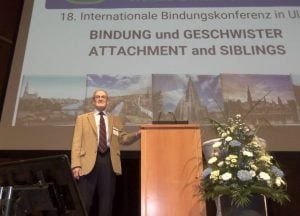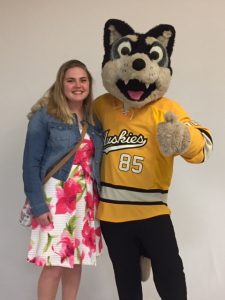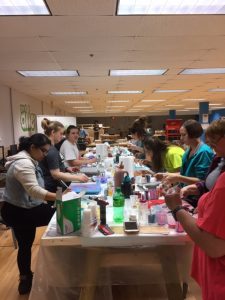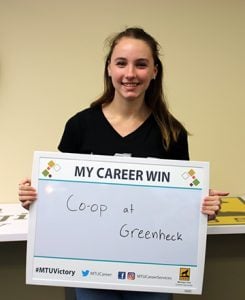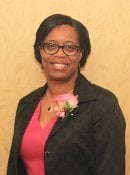Kaitlyn Roose has been named the Director of Esports at Michigan Tech, Director of Athletics Suzanne Sanregret announced on Monday (Nov. 4). Roose is the current President and Co-Founder of the Esports Club at Michigan Tech, and a mentor for the Husky Game Development Enterprise. She is pursuing her Doctor of Philosophy degree in Applied Cognitive Science and Human Factors Psychology.
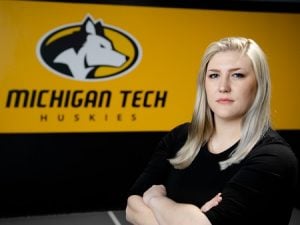
“Kaitlyn brings vast experience in gaming—including scouting, analysis, research and competitive play—to her new role as the Director of Esports. Additionally, she was a softball student-athlete during her undergraduate collegiate career,” Sanregret said. “I would like to thank the search committee for recruiting such an excellent candidate. We are thrilled to welcome Kaitlyn to the Michigan Tech Athletics family, and I look forward to working with her as we grow our esports program.”
“I firmly believe that video games are changing our world,” Roose said. “I came to Michigan Tech to do game research, and I feel blessed to have been heavily supported in this endeavor. I love the interdisciplinary work my department is doing, I appreciate the collaborative and empowering environment it has provided. I intend on creating that culture within the Esports program, inspiring students to challenge themselves and each other while succeeding inside and outside of the classroom. Suzanne and Joel (Isaacson) have done an incredible job doing industry research, interfacing with other programs, and evaluating the potential impact of the program at MTU.”
Roose has over seven years of competitive gaming experience and has achieved respective ranks in the top 10 percent of the player base in Overwatch, Heroes of the Storm and League of Legends. She has scouted opponents for two playoff contender teams, analyzing both individual and team levels. She also has experience writing about, streaming and shoutcasting Esports while also serving as the primary spokesperson and visionary for the Esports Club. Under her term as President, the club has doubled in active members and number of games.
“I’ve always wanted to work in a position that allows me to be a leader, serve in a mentorship capacity and continue doing meaningful research,” added Roose. “I am honored to have been chosen, and I thank the committee for having confidence in me and allowing me to finish my degree in the process. What people say is true: You never leave Michigan Tech, and being a Husky is always a part of you. I’m excited to begin my career with the support of my Michigan Tech family and spearhead this program as a demonstration of how Michigan Tech is truly paving the way for a better future.”
Roose completed her Master of Science in Applied Cognitive Science and Human Factors in December 2018 from Michigan Tech. She conducts her research as a part of the Games, Learning, and Decisions Lab in the Cognitive and Learning Sciences Department. She has conducted multiple studies investigating decision making, problem solving and attention in games and has disseminated the results at several international conferences (CHI Play, Naturalistic Decision Making, APA). Roose has been on an Esports panel and interviewed by the Chief Scientific Officer of the APA about psychology in Esports (LINK).
Roose played two seasons of varsity softball and two seasons of club rugby at Gannon University while pursuing her bachelor’s degree in Psychology. She earned NCAA DII Individual and Team Academic Achievement Honors, as well as National Fastpitch Coaches Association (NFCA) Scholar-Athlete Honors, and was named a PSAC Scholar-Athlete while playing third base. She earned Gannon’s Presidential Scholarship, graduated Summa Cum Laude and was one of 10 finalists for Gannon’s Medal of Honor.
Michigan Tech became the first public school in the state to announce a varsity Esports team in August 2019. Competition will begin with the 2020-21 academic year. Current Michigan Tech students or prospective students interested in being a part of Esports at Michigan Tech should click here.




